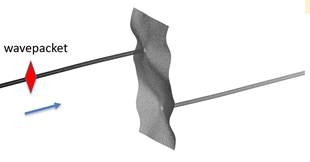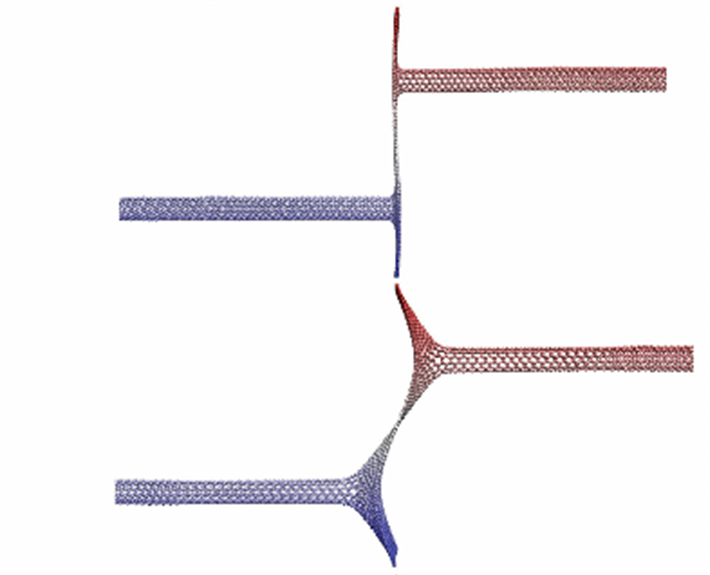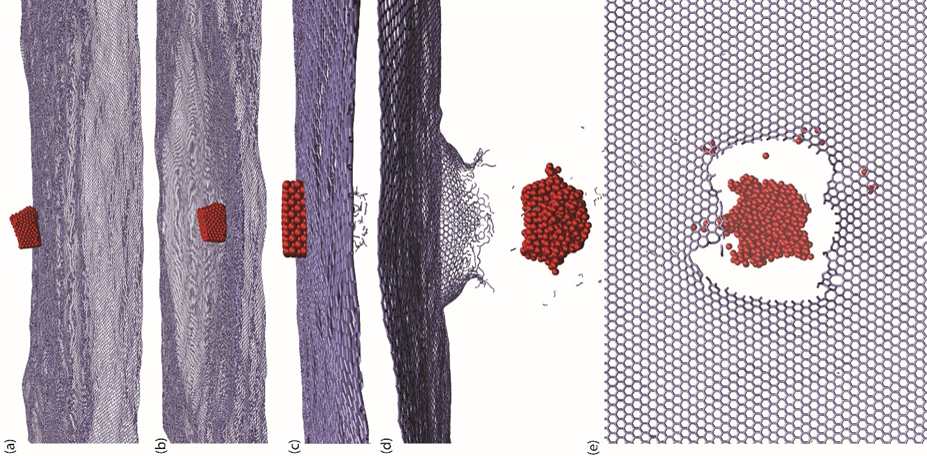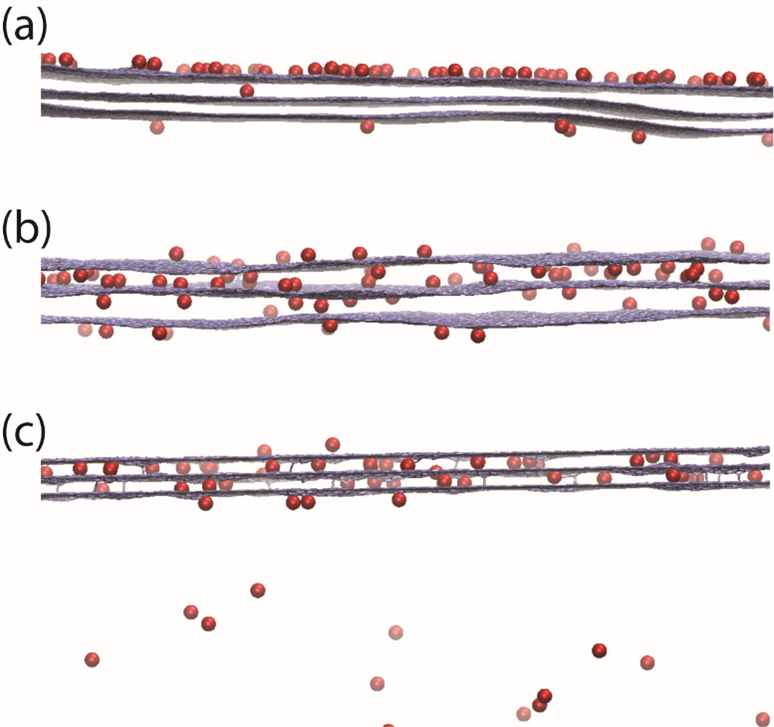Research
- Transport Study in Novel Nanostructured Materials
-
- Phonon scattering from carbon nanotube-graphene junction under mechanical deformation.
Recent advances in flexible electronics and wearable devices demand the development of novel nanostructured materials that can ensure an efficient thermal transport performance under mechanical deformation. Amongst many candidate materials, carbon-based nanomaterials such as carbon nanotubes and graphene are exciting new materials for futuristic electronics because of their excellent thermal transport properties and mechanical strength. We investigate single mode phonon scattering from a junction structure that is consisted of a single walled carbon nanotube and graphene under mechanical deformation using phonon wavepacket analysis.



-
- HIgh strain rate impact on carbon nanostructures
We researched the behavior of graphene experiencing high strain rate impacts by employing molecular dynamics simulations.

-
- Thermal transport in carbon nanocomposites under deformation
Developing carbon nanocomposites by combining these carbon nanostructures with polymer matrices opens an exciting new possibility related to additive manufacturing. Here, we investigated strain effect on the thermal conductivity of the polymer composites of carbon nanotubes

- Nuclear Fuel Study
-
- Tritium absorption on carbon nanostructures
Tritium is a radioactive form of hydrogen that has a detrimental health effect in humans. Advances and growing interests in molten salt reactor fuels demand more research efforts for tritium generation and the efficient control of such hydrogen isotopes. Graphene is a single layer of graphite that possesses a highly efficient thermal transport property and high mechanical strength. Here, we utilize a molecular dynamics simulation to investigate the possibility of using graphene for tritium control.

-
- Thermal transport in molten salt reactor fuel
Molten salt reactors have seen an insurgence of interest and studies because of their high efficiency and their relatively compact design when compared to traditional reactors such as boiling water reactors. Moreover, its low operating pressure is considered to enable safer nuclear reactors. In this research study, we aim to provide a microscopic understanding on the thermal transport of molten salt reactor fuels that is critical to the optimization of them for fuel efficiency and safety.










